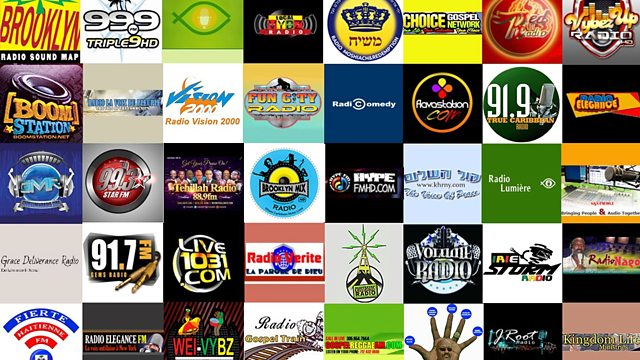SWLing Post friend, David Goren (the same fellow behind Shortwaveology and the Brooklyn Pirate Radio Sound Map) has just produced and presented a BBC World Service documentary about the pirate radio scene in NYC.
Spoiler alert: it’s amazing–!
Below, I’ve included the description and audio links from the BBC World Service:
New York City’s pirates of the air
As the workday winds down across New York, you can tune in to a clandestine world of unlicensed radio stations; a cacophonous sonic wonder of the city. As listeners begin to arrive home, dozens of secret transmitters switch on from rooftops in immigrant enclaves. These stations are often called ‘pirates’ for their practice of commandeering an already licensed frequency.
These rogue stations evade detection and take to the air, blanketing their neighbourhoods with the sounds of ancestral lands blending into a new home. They broadcast music and messages to diverse communities – whether from Latin America or the Caribbean, to born-again Christians and Orthodox Jews.
Reporter David Goren has long followed these stations from his Brooklyn home. He paints an audio portrait of their world, drawn from the culture of the street. Vivid soundscapes emerge from tangled clouds of invisible signals, nurturing immigrant communities struggling for a foothold in the big city.
With thanks to KCRW and the Lost Notes Podcast episode Outlaws of the Airwaves: The Rise of Pirate Radio Station WBAD.
Producer/Presenter: David Goren
Click here to download New York City’s pirates of the air via the BBC World Service.


Thanks for your comment. Listen to the second half. It contains the pushback from a station manager, discussion of interference harms, and comments from the enforcement chief of the FCC.
Thank you David for producing this documentary; and, thank you Thomas for posting it.
Primarily listened to the 2nd half, and it was amazing.
I have mixed thoughts on this subject; because, for me, listening on the HF bands proves to be the most challenging, and yields the most enjoyment.
Monitoring pirate broadcasts around 43-m (6765-7000 kHz), 70-m (4000-4100 kHz), and 90-m
(3150-3450 kHz) are indeed a “pirate ship” of a different wavelength; and, for me, represent the “pure” swashbuckling pirate element on the radio waves.
I understand, however, the differences between listening on relatively inexpensive (and readily available), easy-to-use AM/FM radios – as opposed to listening on more expensive, harder to find
(and somewhat harder to use) SW (multi-band) radios.
The NYC pirate radio communications paradigm, with its diverse audience, ready, willing, and able to receive equally diverse messages – obviously works for the inner city pirates in this case.
However, I can also see how it’s just another source of interference for those radio listeners who just want too listen to the legally licensed broadcasters on AM and FM.
Or, in some cases, a listener just might simply want to DX some of those aforementioned, legally licensed, AM or FM stations.
I don’t know how you can square this circle. It seems to me the overall limiting factor is the amount of available spectrum on both the AM and FM bands. In other words, another variation on the economic principle of supply and demand.
While some of this is great, it is useful to add the other side of the coin represented here by “These stations are often called ‘pirates’ for their practice of commandeering an already licensed frequency.” It is useful to keep in mind that:
1) Someone else put a lot of effort into getting that frequency legally,
2) some listeners want the other station broadcasting there,
3) the person broadcasting may be adding to their community, or they may be broadcasting advertising or their own views without anyone’s approval.
Pirates can provide useful content. I don’t deny that. However, they can also annoy legitimate listeners to other stations. I remember a particular MW station that I enjoyed listening to, but every evening, a pirate would set up with a transmitter only one step away from it and broadcast advertising. No actual content, no music, no news, no commentary. Just a long string of adverts. By going one further step away from my station, I was able to get rid of some of their noise, but I had thus degraded the station I wanted to hear and I was still getting pieces of their noise interrupting my listening. I moved away, but I presume that’s probably not operating anymore. Consider listeners like me when you rush to laud pirates. Those who transmit without respect for the people already broadcasting are harming someone.